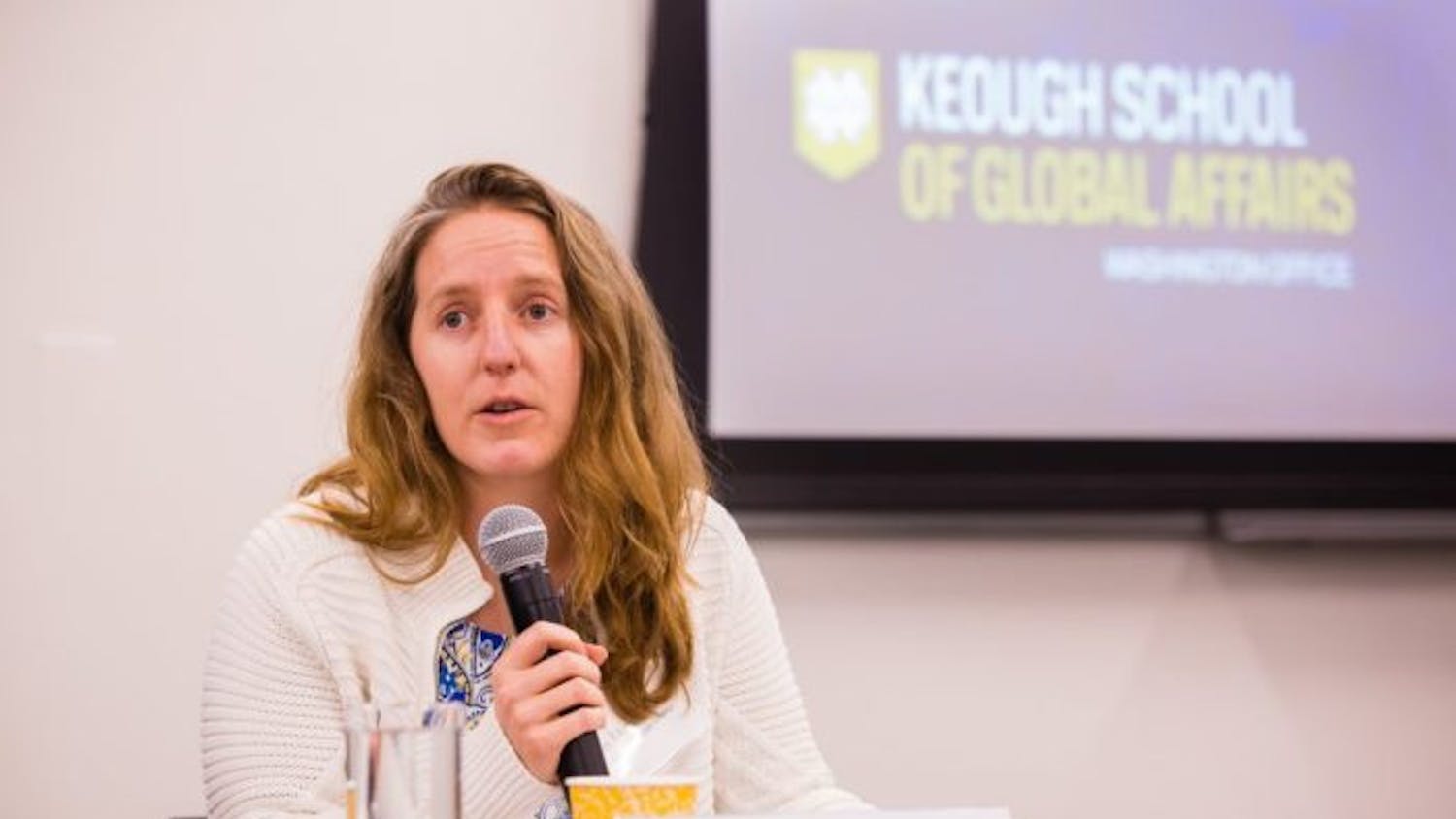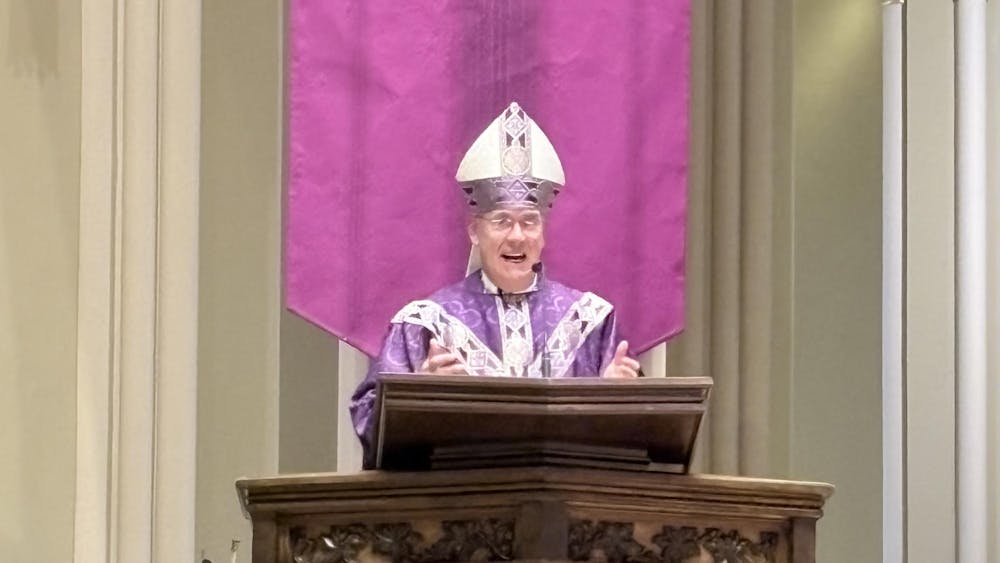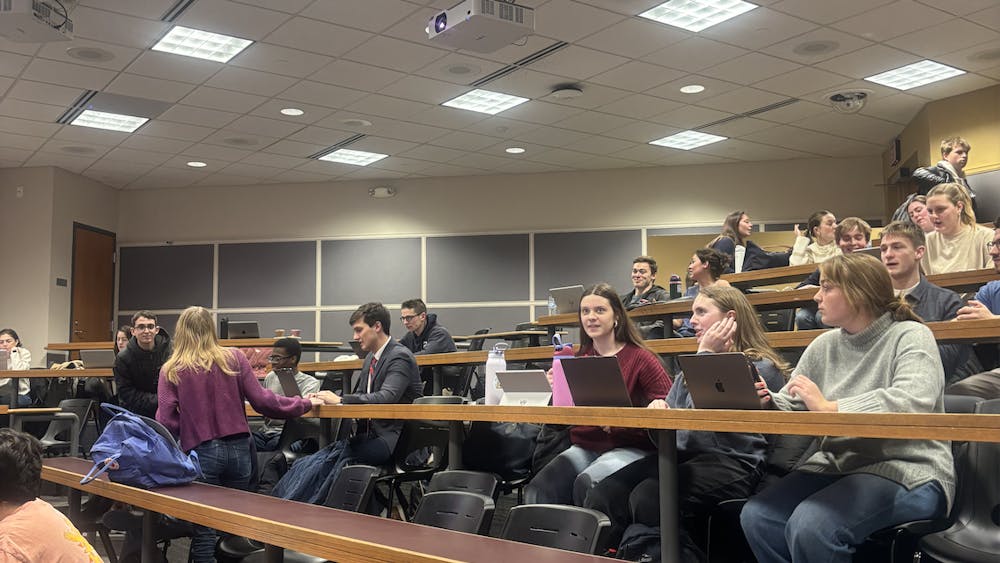On Thursday night, poet Emily Schulten shared her work with the Saint Mary’s community during a lecture in Vander Vennet Theatre. At the reading, Schulten discussed her life in the Florida Keys, from lore about pirate smuggling to her wedding crasher: Hurricane Irma.
Schulten said she has always been interested in the poetic nature of words, but decided to pursue journalism, then international business while in college. But, after three years, Schulten realized her mistake.
“I was always playing with words from a young age,” she said. “As far as, why I chose [poetry] to express myself, I think I chose it to express myself more when I was young and there were no structures I had to conform to. Now that I have been studying poetry and doing publishing and editing for so long, it feels like it's not a vehicle for expression so much as it's a vehicle for communication. I’m more concerned with the voices who will hear it and how it will be reflective for them.”
Schulten’s said her work is very narrative-based and personal, often revolving around what fascinates her in that moment. During her reading, Schulten focused on the history of the Florida Keys and the generational nature of the residents who have lived there for the past 15 to 20 years.
“Generational themes are hard to get away from because they’re so human, they’re tied to our emotional experience and they’re evolving in ways you can’t help but notice and pay attention to,” she said. “A lot of tradition isn’t held on as tightly to as it once was.”
On her writing process, Schulten said teaching sparks ideas for many of her poems. She cites these experiences as inspiration that enables her to keep producing written works.
“The best times are when you’re in a room full of students … where there’s this magic in the chemistry of the group you have, and you immediately go back to your desk and blow off everything and write,” she said. “My students bring that out so often because we learn from other people. There’s a lot of places to learn but people, that’s where you learn things. I want to be learning when I’m writing.”
In addition to her teaching career, Schulten said she looks for bits of inspiration in the writings of others. Schulten said she combines what she gains from reading with ideas she already has in mind in order to craft works of her own.
“Sometimes I’ll have an image [or] I’ll have a point I want to make but no vehicle for it,” she said. “When I’m in that situation, or when I have to write something and I can’t get started, I could pull any book of poetry off the shelf, open it to any page and halfway through the poem, I know exactly what I’m going to write about.”
Fledgling writers have such great opportunities to receive feedback on their work, Schulten said, making the experience of being in writing classes truly special. The feedback from peers, she said, enables writers to learn and grow as a community.
“It’s huge to have somebody you know who’s going to read your work and tell you what they think of it,” she said. “And when I have graduate students who can’t handle getting feedback, I try so hard to impress upon them what a gift that is — that community.”
While working on her Ph.D. at Georgia State University, Schulten was given advice from a thesis advisor that helped her appreciate the writing community she had as a student.
“He said, ‘I hear you and your friends talking about how you can’t wait to be done, but you will never have a community like this again, and you need to hold on to it,’” she said. “There [is] nothing like the built in community of a campus or writing program.”
Schulten said she advises students to respect the workshop process but also maintain their creative integrity while sharing their writing.
“The best advice I can give is to work toward that place where you know the difference between what feedback will work for you and what won’t,” she said. “So that’s the goal, to really get to that point and respect it, to know your own value as a writer so that you don’t live with too much doubt.”
While avoiding the discouragement and apprehension that accompany being a female writer, Schulten said she enjoys balancing life as a professor and poet because her desire to write is a constant presence in her life.
“The biggest challenge is being a female poet — it’s not an easy thing,” she said. “You have to keep going and you have to keep going even when you think you shouldn’t or you’re not meant to do it, or you think it’s not worth it. That’s either the biggest challenge or something we have no choice about anyway, because if you’re a writer, you’re going to keep going.”
Poet visits Saint Mary's, reflects on writing community
Emily
Poet Emily Schulten discusses her passion for writing during a lecture Thursday night. Schulten said she first realized her love of words at a young age.









